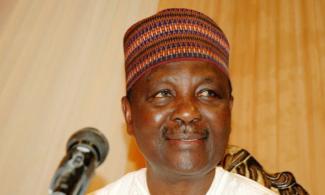A civil society group known as Rising Sun has accused Nigeria’s former Head of State, General Yakubu Gowon (Rtd), of misrepresenting key events that led to the failure of the 1967 Aburi Accord and, ultimately, the Nigerian Civil War. In a statement released on Sunday in Abuja, the group said Gowon’s recent comments about the accord were misleading and an attempt to rewrite the truth. The statement was signed by Chief Maxwell Dede, the group’s president, and Rev. Fr. Augustine Odimmegwa, its secretary.
They challenged Gowon’s claim that the agreement broke down because the late General Chukwuemeka Odumegwu Ojukwu insisted that regional governors should control military forces. According to Rising Sun, Ojukwu’s position was a reasonable demand for justice, safety, and a fair federal structure. The Aburi Accord, which was held in Ghana on January 4 and 5, 1967, was intended to prevent national collapse after the coups of 1966 and the widespread killings of Eastern Nigerians in the North.
The group said the agreement clearly promoted regional autonomy, a loose federation, and shared military control. They argued that sticking to those terms could have prevented the war, the mass deaths, starvation, and destruction that followed. According to them, the deal was well-documented and even recorded on tape, making Gowon’s version of events questionable.
They claimed that Gowon backed out of the agreement due to influence from the British High Commission and northern political elites, who were allegedly protecting colonial-era business interests, particularly those of Shell BP. The group accused Britain of opposing a working federation of autonomous regions and instead supporting a single, centralized system dominated by northern leadership.
Citing the example of the United States, Rising Sun questioned why allowing regional control of security forces was considered dangerous, noting that U.S. state governors manage their own National Guards. They said many of Nigeria’s ongoing challenges—like insecurity, poverty, and poor governance—stem from that decision to abandon the Aburi framework.
They also called on researchers and historians to re-examine the original records of the Aburi meeting, which they say remain available to the public. The group insisted that Ojukwu’s position was not about breaking away from Nigeria but about securing fairness and autonomy within a federal structure.
They concluded that although Gowon may try to shape the narrative, history already tells a different story. The group’s claims have reignited debates around Nigeria’s current structure and fresh calls for restructuring to address long-standing regional grievances.

